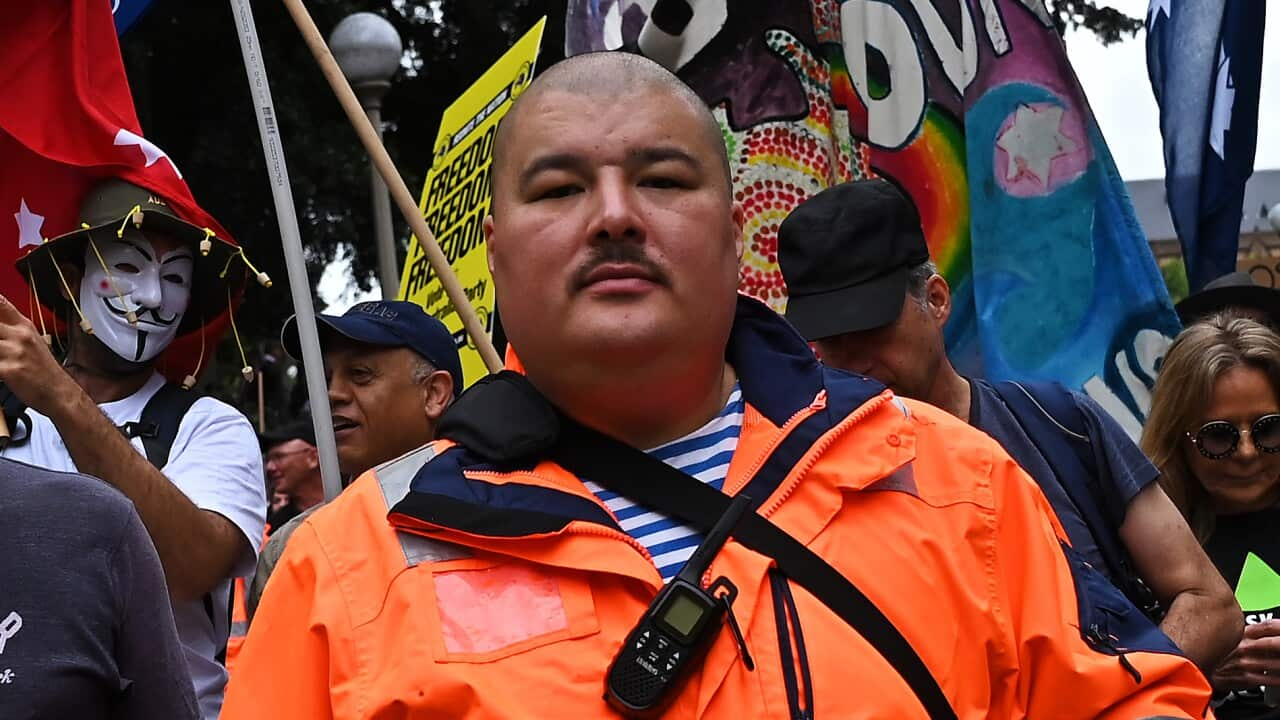Key Points
- Officials are investigating reports Melbourne teacher Oscar Jenkins has been killed by Russian forces in Ukraine.
- The Russian ambassador has been called into the Department of Foreign Affairs and Trade to clarify the reports.
- Foreign Minister Penny Wong is now weighing up whether to expel Moscow's representative in Canberra.
Australia will take "the strongest action possible" against Russia if reports that Melbourne prisoner of war Oscar Jenkins was killed by Russian forces in Ukraine are confirmed, Prime Minister Anthony Albanese has said.
"We will await the facts to come out. But, if there has been any harm caused to Oscar Jenkins, that is absolutely reprehensible," he told reporters on Wednesday.
The remarks come as officials scramble to verify reports that Jenkins has been killed in Ukraine, with Foreign Minister Penny Wong also warning earlier that Russia's ambassador in Canberra could face expulsion if the Australian was indeed harmed.
"I want to be clear, all options are on the table," she told ABC Radio National on Wednesday.
"My thoughts are with Mr Jenkins' family. They've lived with a fear and uncertainty of a loved one in the middle of a foreign war for many months," she said.
The 32-year-old is believed to be the first Australian held as a prisoner of war by Russian forces in Ukraine.
Footage of him circulated on social media last month, looking visibly bruised and shaken while being interrogated and beaten by a Russian-speaking captor.
"These reports have not been verified, but we continue to have grave concerns for Mr Jenkins' welfare," the Department of Foreign Affairs and Trade (DFAT) said in a statement on Tuesday evening.
If his death is confirmed, Jenkins would be the first Australian prisoner of war to be killed in more than 70 years.
Russian ambassador asked to clarify reports
The Russian ambassador was called into DFAT in a bid for clarity on the reports and to "reiterate Australia's expectations that Russia will comply with its obligations under international law".
"The Russian Federation is obligated to treat all prisoners of war in accordance with international humanitarian law," the statement read.
"DFAT is continuing to provide consular support to Mr Jenkins' family during this difficult time."
Opposition calls for strong response
Federal Opposition is demanding the expulsion of the Russian ambassador if the reports are true.
Opposition foreign affairs spokesperson Simon Birmingham said if Russia had undertaken an extrajudicial execution of a captured Australian citizen, then the Albanese government should respond in the strongest possible terms.
"Three years ago, the then Labor Opposition urged Russian diplomatic expulsions, yet in government, Labor has undertaken no such action," Birmingham said.
"If Russia has engaged in such an egregious and illegal action, then it must now be a catalyst for action."
Although there are other Australians who have gone over to fight in Ukraine since Russia began its invasion in 2022, Jenkins is the first combatant reportedly captured by Russian forces.
Russia has previously said foreign citizens fighting for Ukraine will be prosecuted as mercenaries and face up to 15 years in jail, which would contravene international law.
What happens if an ambassador is expelled?
The Vienna Convention on Diplomatic Relations — of which Australia is a signatory — is an international treaty that establishes the rules for diplomatic interactions between countries.
The document gives its members significant leeway when it comes to expelling diplomats without requiring them to explain their reasons for doing so.
In Canberra, such expulsions are somewhat rare, but over the years, they have been wielded as a tool to express misgivings with foreign governments.
A prominent example was former foreign minister Bob Carr's 2012 decision to expel Syria's chargé d'affaires, Jawdat Ali — the country's highest-ranking official in Australia at the time — in response to the killing of more than 100 civilians in the Syrian village of Houla.
An expulsion is usually followed by a strict window in which the diplomat is told to leave their host country. Refusing to leave is considered a breach of the Vienna convention, and could result in a major political crisis.



